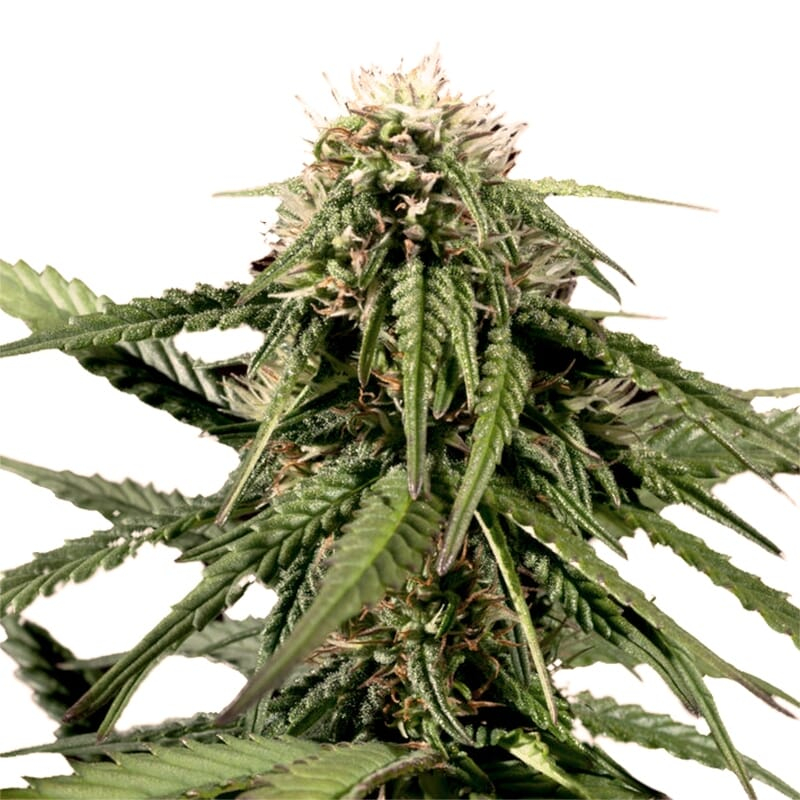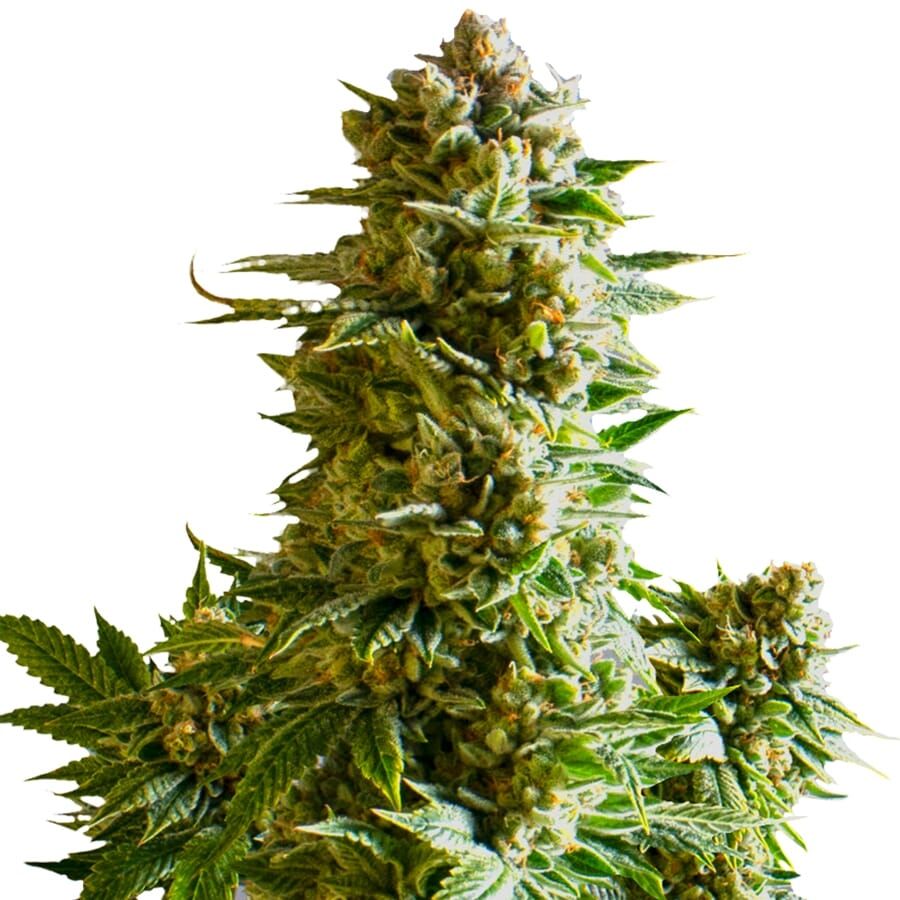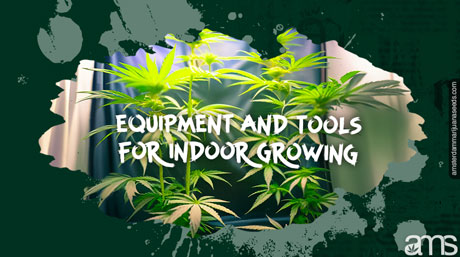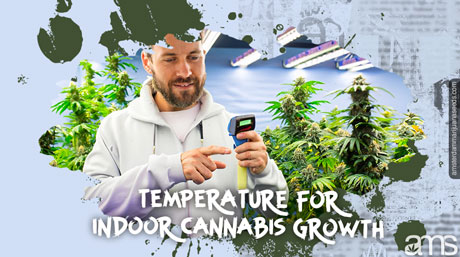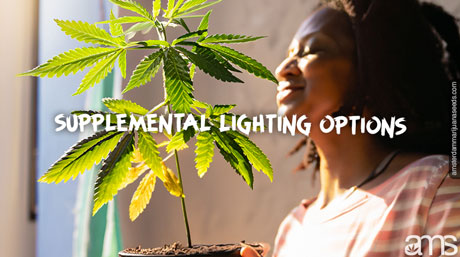When it comes to cultivating marijuana plants indoors, ensuring the proper balance of light and temperature is essential for achieving optimal growth and maximizing yields. Let’s explore the significance of light and temperature in detail.
The Importance of Light in Marijuana Cultivation
Light is a crucial factor in the growth and development of marijuana plants. It serves as the primary source of energy for photosynthesis, the process by which plants convert light into essential nutrients. For indoor cultivation, artificial lighting systems are used to provide the necessary light spectrum that mimics natural sunlight.
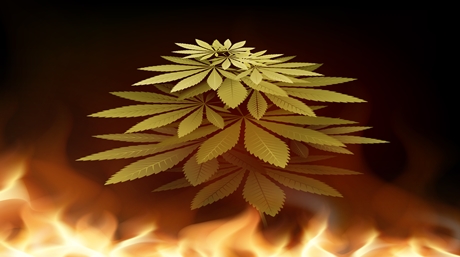
Insufficient light can result in stretched, leggy plants with sparse foliage. Inadequate light levels hinder the plant’s ability to produce energy, leading to weak structures and reduced overall productivity. During the vegetative stage, when plants focus on leaf and stem development, it is crucial to provide sufficient light intensity to support healthy growth.
On the other hand, excessive light exposure can cause light burn, a condition where the upper leaves of the plant become damaged. Light burn is characterized by leaf discoloration and curling of the leaf edges. Moreover, intense heat, generated by the lights can lead to bleaching of the buds, causing a decrease in THC levels and compromised potency.
To prevent light burn, it is essential, to maintain an appropriate distance between the light source and the plants. Different lighting systems have specific intensity levels, and following the manufacturer’s guidelines regarding the recommended distance is crucial. Starting with the lights positioned higher and gradually lowering them allows the plants to adapt to the increased light intensity without experiencing stress or damage.
Additionally, understanding the different light spectrums and their effects on plant growth is important. During the vegetative stage, marijuana plants require a higher proportion of blue light to promote healthy leaf and stem growth. Blue light has a shorter wavelength and is essential for stimulating chlorophyll production. On the other hand, during the flowering stage, plants require more red light to encourage bud development. Red light has a longer wavelength and is responsible for triggering the flowering process.
LED grow lights are popular among indoor growers due to their efficiency and versatility. LED lights can be customized to emit specific light spectrums, allowing growers to tailor the lighting conditions according to the plant’s growth stage. By providing the right spectrum and intensity of light, growers can optimize plant growth, enhance resin production, and achieve higher yields.
The Significance of Temperature in Marijuana Cultivation
Temperature plays a vital role in all stages of marijuana growth, influencing plant metabolism, nutrient uptake, and overall plant health. Proper temperature control is crucial for maximizing yields and ensuring high-quality buds.
During the vegetative stage, maintaining a temperature range of 70 to 85 degrees Fahrenheit (21 to 29 degrees Celsius) is generally recommended. However, it’s important to note that lower temperatures within this range promote tighter internodal spacing and bushier growth, while higher temperatures encourage more elongated growth. Adjusting the temperature based on strain characteristics and desired plant structure is essential during this stage.
As the plants transition to the flowering stage, temperature control becomes even more critical. The ideal temperature range during this phase is slightly lower, typically between 68 and 78 degrees Fahrenheit (20 to 26 degrees Celsius). Cooler temperatures during flowering help preserve terpene profiles, maintain resin production, and promote optimal bud development. Higher temperatures can lead to reduced flower density, resulting in less desirable, airy buds.
Humidity levels also play a significant role in marijuana cultivation. Maintaining proper humidity levels helps prevent issues such as mold and mildew growth, which can damage the plants. During the vegetative stage, humidity levels of around 50-70% are generally recommended, while during the flowering stage, it’s best to keep the humidity levels lower, around 40-50%, to prevent bud rot.
Consistency in temperature and humidity levels is crucial for plant health and avoiding stress. Rapid fluctuations in temperature or humidity can shock the plants and lead to negative effects such as slowed growth or nutrient deficiencies. Using environmental control systems can help maintain stable conditions by automatically adjusting temperature, humidity, and airflow based on pre-set parameters.
In addition to temperature and humidity, providing adequate ventilation and airflow is essential for a healthy grow environment. Proper air circulation helps prevent the buildup of stale air, removes excess heat, and supplies fresh CO2 for photosynthesis. The use of fans and exhaust systems can promote air movement and create a more controlled and optimized growing environment.
Growers should also consider the impact of temperature and humidity on transpiration rates. Transpiration is the process by which plants release water vapor through their leaves. Higher temperatures and lower humidity levels can increase transpiration rates, leading to faster water loss from the plants. To compensate for this, growers may need to adjust their watering schedules and monitor soil moisture levels more closely.
It’s worth noting that different strains may have unique temperature and humidity preferences. Some strains may thrive in slightly higher temperatures, while others may be more sensitive and require lower temperatures. Similarly, certain strains may tolerate higher humidity levels, while others may be more prone to mold or mildew issues. It’s important for growers, to understand the specific needs of the strains they are cultivating and make adjustments accordingly.
Conclusion
Understanding the importance of light and temperature in marijuana cultivation is vital for achieving successful results. By providing the right balance of light intensity, spectrum, and maintaining appropriate temperature and humidity levels, growers can optimize plant growth, maximize yields, and produce high-quality buds. Continual education, staying informed about the specific requirements of different strains, and regularly monitoring the grow room conditions are essential for achieving the desired outcomes in indoor marijuana cultivation.
Remember, each strain may have unique preferences, and it’s important to adapt cultivation practices accordingly. By paying attention to the needs of the plants, implementing proper lighting and temperature strategies, and staying proactive in maintaining an optimal grow environment, growers can set themselves up for successful and rewarding marijuana cultivation experiences.







